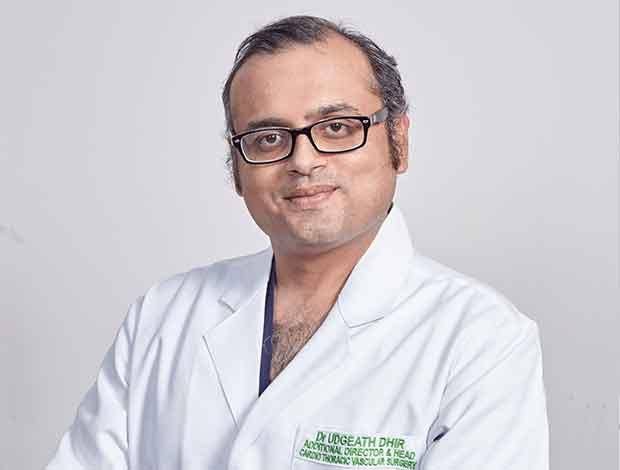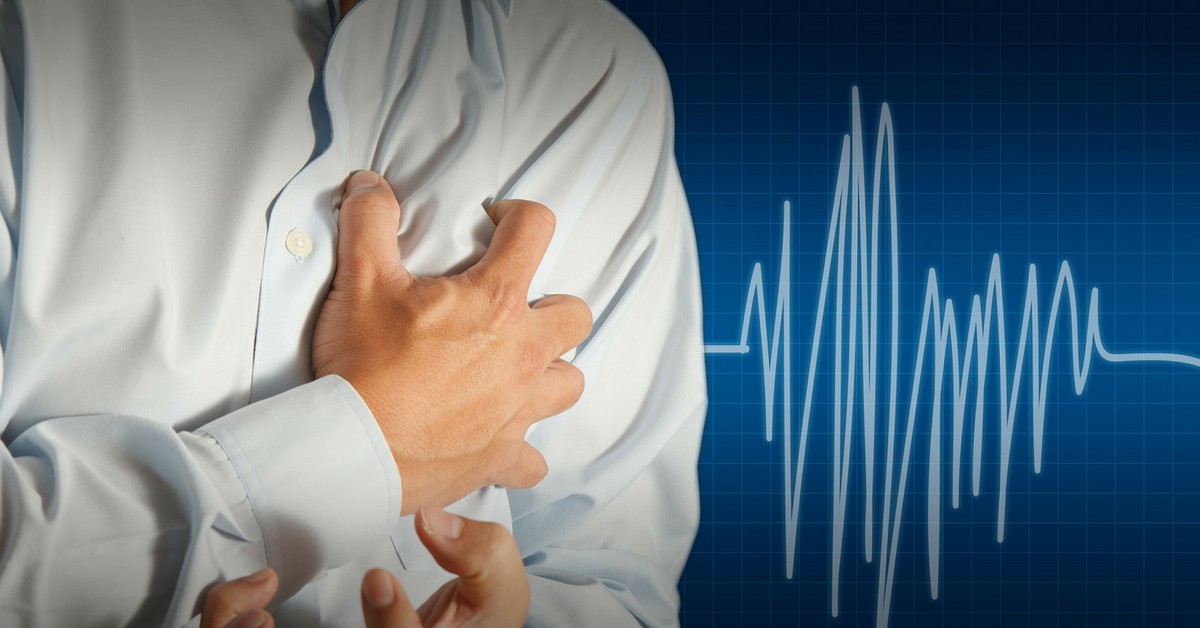“One of the youngest patients I have seen was all of 28, who was presenting signs of cardiac distress,” says Dr Udgeath Dhir, Director & Head Fortis Memorial Research Institute, Gurugram Adult CTVS (Cardiothoracic and Vascular Surgery).
Cardiovascular disease is one of the top causes for human fatality not just in India but all over the world. Once known as a condition that affects only the elderly, today cardiovascular disease affects even the younger population, owing to their sedentary lifestyle.
The Better India caught up with Dr Udgeath Dhir and his 55-year-old patient Vinay Gupta, a resident of Delhi who suffered a ‘silent heart’ attack in July 2020 and consulted Dr Dhir thereafter.
A silent heart attack, also referred to as Silent Myocardial Infarction (SMI), is a serious, life-threatening condition. This can occur without showing any symptoms or have unrecognisable symptoms that are often confused with other health conditions, leading to people ignoring all the symptoms. In the majority of cases, silent heart attacks are mostly confused with indigestion, fatigue or even a strained muscle near the chest.
“I found myself feeling uneasy and had difficulty breathing at around 1 am at night in early July 2020. This had happened earlier and I had found that standing right next to the air conditioner and just taking in the cool air into my mouth helped me feel better,” says Vinay. He adds that in about 10-15 minutes of doing this, he started feeling better. Morning came and he had forgotten all about the uneasiness he felt the previous night.
“It was my birthday on 8 July and my brother, who was visiting, insisted that I get myself checked up. With great reluctance, I went to Fortis and it was after the angiogram was done that the blockages were detected. I had two completely blocked arteries and another with almost 95 per cent blockage,” he says. Dr Dhir adds that if he had neglected it further it could have resulted in a rather fatal situation.
The first time Vinay felt the same uneasiness was almost a year ago in August 2019. After that it was only in July 2020 that he experienced the same feeling again. “Even though I felt the discomfort, I attributed it to my lifestyle and the rich food that we indulge in often,” he says. He never put it down to it being an issue of the heart. One year later, after he had undergone treatment and a surgery, he says that he made lifestyle modifications to stay healthy.
Explaining the uneasiness, he says, “I would feel like my chest was constricting and I had difficulty breathing. Standing in front of the air conditioner seemed to bring about some amount of relief, and therefore I started doing that.”
Answering the question about why this is referred to as a silent attack, Dr Dhir says, “They are described as ‘silent’ because often when they occur, their symptoms lack the intensity of a classic heart attack such as extreme chest pain and pressure; stabbing pain in the arm, neck, or jaw; sudden shortness of breath; sweating and dizziness.”
The pain that one feels during a silent attack can radiate from their earlobe down to the umbilicus (navel), adds Dr Dhir.

“I have had patients tell me they feel pain and tightness in their jaw and throat area after they exercise or physically exert themselves. This is referred to as ‘Anginal equivalents’. These are symptoms of myocardial ischaemia other than angina,” he says. Sometimes people tend to confuse these signs that the body gives us with gastric pain and therefore tend to overlook the same.
“Being vigilant about all the tell-tale signs and red flags that the body experiences can help save your life. So always consult your doctor at the earliest manifestation of any issue,” he adds. He also urges those with a strong family history of cardiac issues to start getting regular check-ups done from the age of 30 or 35 itself.
Reiterating the importance of taking care of one’s body, Dr Dhir says, “Just like one doesn’t forget to pay their mobile bills or have their meals, it is important to remember that a few minutes each day to exercise and take care of the body is also very important in the long run. Learn to prioritise yourself as well.”
Important points to remember:

1. Monitor Your Basal Pulse Rate:
Your pulse is your heart rate and the number of times your heart beats in one minute is a great indication of your heart health. “Patients with a higher pulse rate have a greater propensity towards some or the other disease in the body, most likely cardiac related. This could be because of inadequate physical activity or because of the person being a hyperactive personality type,” says Dr Dhir. The slower the pulse rate the better the heart condition, he says. Citing an example, he says, “Turtles are known to have a low heart rate and they also have a very long-life expectancy. The slower the pulse rate the better the heart condition and therefore a longer life,” he adds.
2. Postprandial Sweating:
“If you find yourself sweating excessively after a meal or have difficulty in breathing or experience a tightening of the chest, these signs must be investigated at the earliest,” says Dr Dhir. It might also be beneficial to keep a record of when these symptoms occur and what food you have consumed. Bringing about some lifestyle changes like cutting down on alcohol, excessive salt in your food and smoking may also help deal with the uneasiness one might be experiencing. However, the first step is to reach out to a doctor and seek medical help.
3. Regular Monitoring of Blood Pressure and Sugar:
“As a matter of practise, one must ensure that they go for regular health check-ups. In cases where there is a known family history of high BP or elevated sugar levels, such people must begin their screening process as early as 30,” says Dr Dhir. One must also undergo regular screening, if there are sudden cardiac deaths in the family. “Being able to detect a problem in its nascent stage will help treat it more effectively,” says Dr Dhir.
4. Schedule Time For Exercise:
“Ensuring that you get at least 45 minutes of time each day for a brisk walk is non-negotiable. Along with this, trying to do some cardio-based exercises will also help in maintaining good heart health,” says Dr Dhir. Exercising is also a good way of self-screening and Dr Dhir says that if you are able to sustain yourself for a period of 45 minutes of exercise, it indicates a reasonably good heart health.
“Don’t wait, start exercising today,” he concludes.
(Edited by Yoshita Rao)
No comments:
Post a Comment